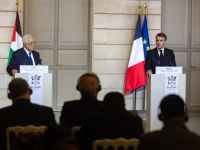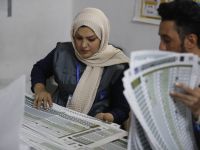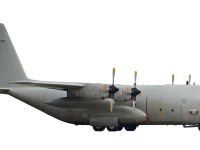Palestinians prepared to bury four more of their dead Saturday following an upturn in violence the previous day, as the United States continued to plea for calm before peace talks can resume.
But the prospects were growing that political developments in Israel might kill the peace process altogether, with Prime Minister Ehud Barak having moved a step closer to forming an emergency government with his political adversary, Ariel Sharon.
The Palestinian territories awoke to calm Saturday after a day that also left almost 200 wounded in what had been declared a "day of rage."
Most of the violence occurred in the West Bank, but the Gaza Strip also witnessed fiery clashes between Palestinians and Israeli soldiers.
Palestinians burnt an Israeli tank in the Gaza Strip on Friday. Demonstrators threw molotov cocktails at the tank, stationed near one of the settlements in area.
The latest deaths brought to 144 the number of people killed -- mostly Arabs -- since violent confrontations broke out after Sharon's controversial September 28 visit to the al-Aqsa mosque compound in occupied east Jerusalem, a site sacred to both Jews and Muslims.
An Israeli official said Friday that representatives for Barak and Sharon had reached a partial accord on conditions for creating a national unity government, which Palestinians and the Israeli left wing have said would kill the peace process.
Details were only sketchy, but it was thought that Barak and Sharon would meet again Saturday evening for the first time in several days.
US President Bill Clinton, venting his frustration Friday as the death toll mounted in the Middle East, ruled out a resumption of Israeli-Palestinian peace talks as long as the killing continued.
"I'm frustrated. I'm just as frustrated as you are, and it's heart-breaking," said Clinton.
"And I'm very disturbed about today, because you actually had two or three good days where there was very little violence."
Clinton urged Israelis and Palestinians caught in the spiral of violence to retain hope.
Earlier this week the White House said Clinton intended to invite Barak and Palestinian leader Yasser Arafat to the United States for separate talks.
"But we've got to get the level of violence down before there can be a resumption of negotiations," Clinton said.
Clinton later spoke to German Chancellor Gerhard Schroeder, who travels Saturday to the Middle East for a five-day visit.
Schroeder is visiting Egypt, his first stop, as well as Jordan, Israel, the Palestinian territories, Syria and Lebanon.
The two leaders focused on current unrest in the Palestinian territories and the broader issue of Middle East peace, White House spokesman P.J. Crowley said.
In Moscow, Mahmud Abbas, a top aide to Palestinian leader Yasser Arafat, called for Russia to play a more central role in the peace process.
"At every meeting, we have insisted that Russia sit at the negotiating table because we think that it can contribute to finding an agreement between" Israel and the Palestinians, he said.
Meanwhile a senior US official expressed concern about reported cooperation between Arafat and militant groups opposed to the peace process.
"We don't think it's good. It's a bad idea," said the official, who declined to be named, in response to reports that Arafat was working with Hamas and Islamic Jihad.
The two militant groups are virulently anti-Israel and violently opposed to the peace process – JERUSALEM (AFP)
© 2000 Al Bawaba (www.albawaba.com)







